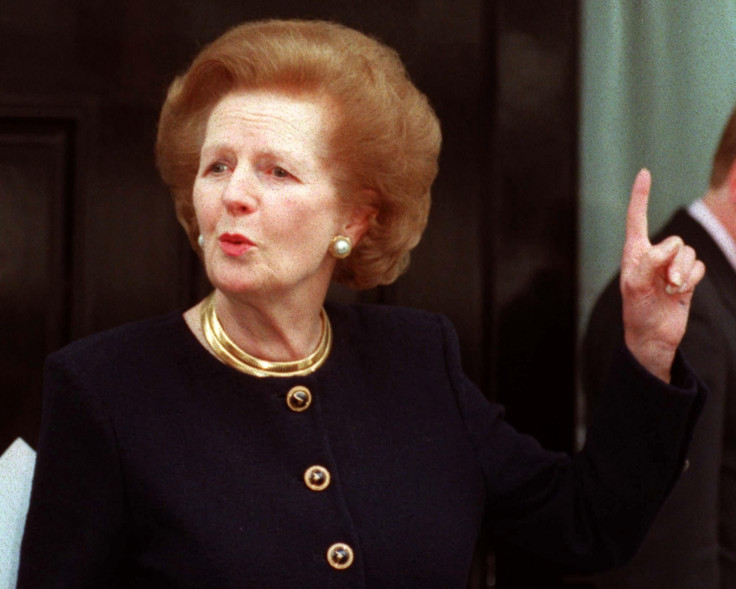Why We Boycotted Margaret Thatcher Tribute In Parliament: Labour MPs

A number of Labour MPs refused to attend a parliamentary session on Wednesday to pay tribute to former prime minister Margaret Thatcher, who died earlier this week at age 87.
Most of the MPs, who boycotted the special session called by Prime Minister David Cameron, cited Thatcher’s economic policies in the 1980s which, they allege, not only hurt their own particular constituents, but people across Britain. Some also objected to Thatcher receiving what will amount to an expensive state funeral.
Here's why some MPs boycotted Thatcher's tribute:
Huw Irranca-Davies, Ogmore, South Wales:
"A dire Thatcherite legacy stands out in former coal-mining communities. The enduring memories here are bitter. She broke the back of these communities and families for at least a generation, and that is simply unforgiveable."
Steve McCabe, Selly Oak, Birmingham:
"My constituency is still suffering from [Thatcher’s] attacks on manufacturing."
Grahame Morris, Easington, County Durham:
"The … celebration of Thatcher's legacy is at odds with the hardship many individuals and communities in East Durham suffered and are still suffering as a result of her policies. Many of her policies were viewed as vindictive and lacking in compassion. They have had long-term consequences for areas like mine. Easington is still struggling to get over the Thatcher era. It had the most people on sickness benefits in the country, the worst obesity rate and poorest pensioners. She broke the backs of communities and families for at least a generation. That is simply unforgiveable."
Dawn Primarolo, Bristol South:
"The agenda pursued by the Thatcher government led to destruction of many communities across the country, the effect of which is still felt today. Margaret Thatcher could not have been more wrong to say there was no such thing as society, only individuals. The challenges we face today have their roots in the consequences of her policies. Many reflect on how she was viewed internationally, for me the misery and humiliation of the Bristol South communities is writ large and saying she did it with conviction will not take make it any more acceptable to those who remember it vividly."
David Hamilton, Midlothian, Scotland:
"I'm an old-fashioned lad -- you don't go to a funeral and start criticizing the individual. It took me two and a half years to get a job and that was as a part-time landscape gardener. I only saw her cry when she left office. She shed no tears for the miners in my area."
Caroline Lucas, Brighton Pavilion (Green Party):
"I opted to spend my time working on constituency issues rather than join in the seven-hour display of Tory hero worship in the House of Commons for someone who caused the British people so much misery. In my constituency, people remember all too well Thatcher's opposition to gay rights, her reckless housing policies and cruel indifference to inequality. She may have been Britain's first female Prime Minister, but Thatcher did little for women either inside or outside the House of Commons. And she pursued a destructive agenda that marginalized the poor, divided communities and undermined the principles of the welfare state."
Bill Esterson, Sefton Central, Merseyside:
"People here on Merseyside remember the Thatcher years and how they caused real poverty. A lot of people here were employed on the docks and thousands lost their jobs. People remember how that was done without a thought for their families and how industry in the North West was destroyed.”
Tom Watson, West Bromwich East:
"Industry was devastated and communities broken [by Thatcher]."
Ronnie Campbell, Blyth Valley:
“I’m not going down to Parliament to hear Tory MPs heaping praise on her. I’d rather be in a torture chamber than sit there and listen to that.”
Sarah Champion, Rotherham:
“My decision not to attend parliament today is not about disrespecting the woman, it is simply because I do not feel it is an appropriate use of parliamentary time. Personally, I feel that the Labour frontbench should attend to show their respect. Ed Miliband should read out a statement of condolence and that should be it. Otherwise, the Labour backbenchers that attend are placed in an impossible position. Do they praise a woman who attacked the foundations of our society, or do they use the platform to criticize her policies and be seen as disrespectful?
“I moved to South Yorkshire in 1989. The area had been torn apart by Thatcher’s determination to break the trade unions over the miners' strike using vicious siege tactics. Recession, astronomical interest rates and her drive to break up state-owned industry hammered the steel industry into submission. Coal and steel were the principal industrial employers for Rotherham. Whole villages were reliant on their success and growth to prosper themselves.
“What Thatcher never seemed to understand was the importance of community and the integral role employers play within that. By destroying the coal mines, she ripped families apart and destroyed people's identities and self-esteem. Thirty years on we have still not recovered from that, and, to be honest, I don’t know if we ever will. There is no way as the MP for Rotherham, as someone who went on the poll tax rallies, as a child that never became milk monitor, I could justify going down to Parliament today. I am not a hypocrite.”
John Healey, Wentworth and Dearne:
“Parliament is being used for narrow political gain by the Prime Minister [David Cameron], as a platform for his party’s ideology not just eulogy. He’s wrong to recall Parliament, and wrong to hijack it in this way. I will play no part and I will stay away… Her legacy is too bitter to warrant this claim to national mourning.”
Mark Durkan, Foyle, Northern Ireland SDLP:
"She had a controversial impact here. But I don't think anyone's death is a matter for celebration and rejoicing ." One in three Derry children still lives in poverty.
© Copyright IBTimes 2024. All rights reserved.





















